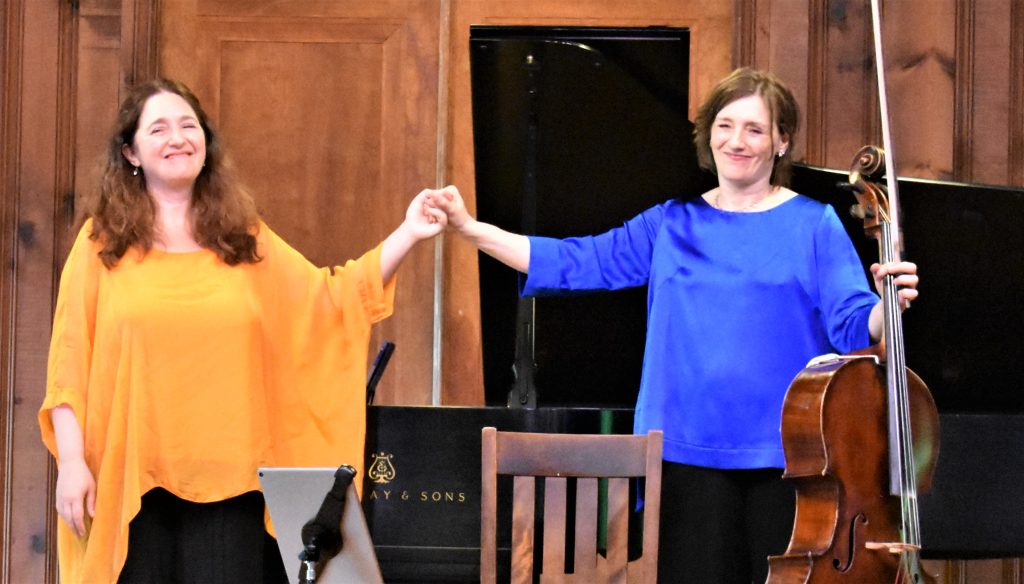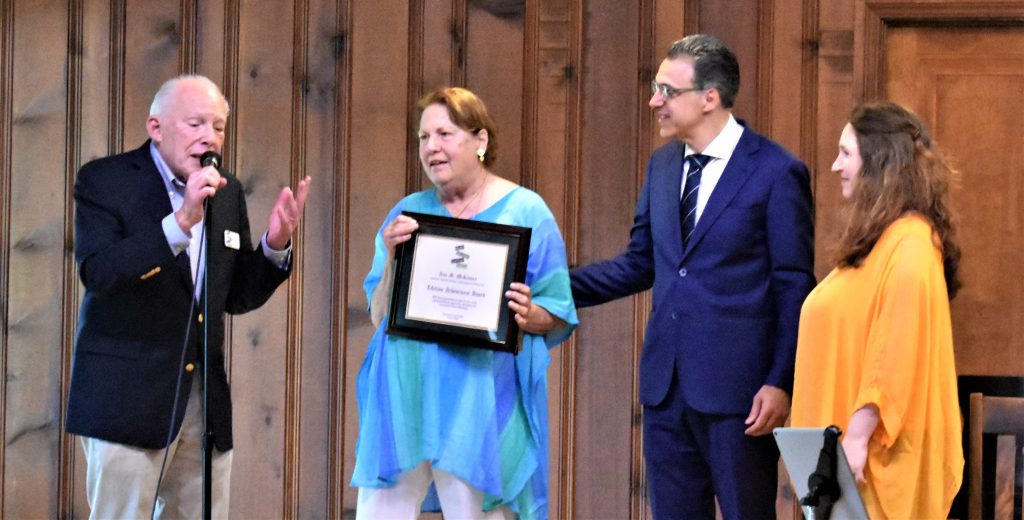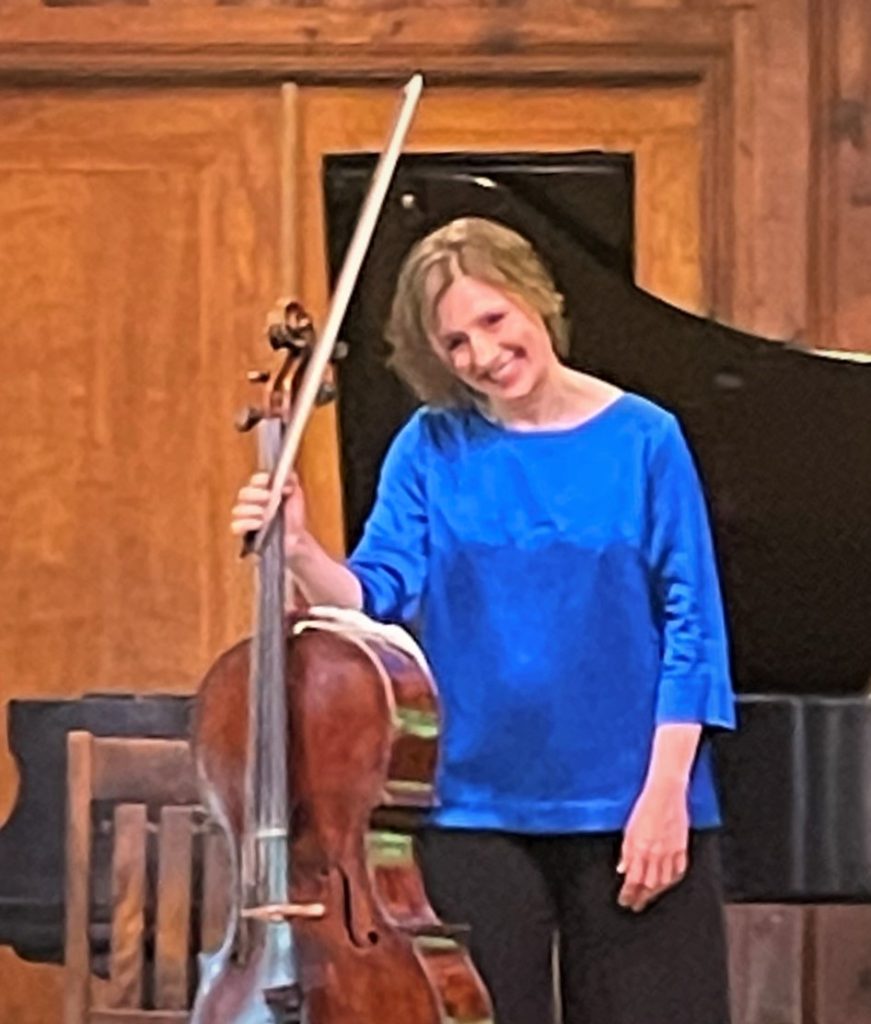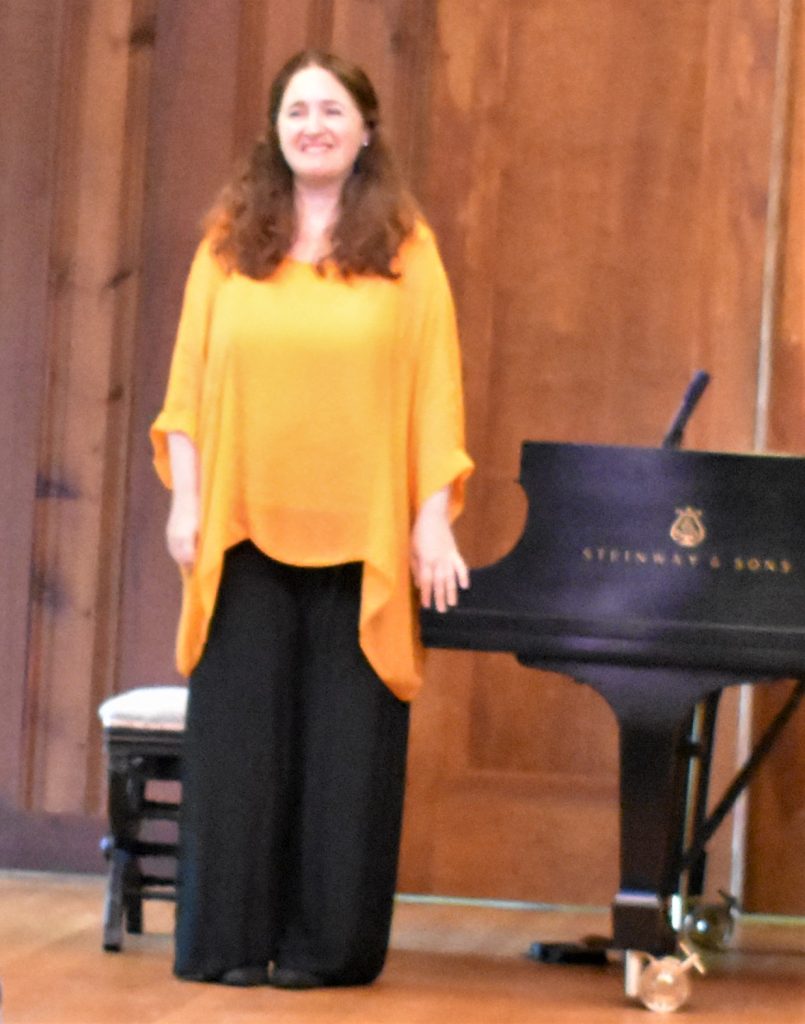
by Kevin T McEneaney
The music program was preceded by the presentation of the 2004 Lifetime Achievement Award to Ann M. McKinney who has been a decades-long backer of both Music Mountain and the early youthful years of Simone Dinnerstein. Ann wore a gracious halo of wit and humor in receiving the award.

Simone Dinnerstein and Alexis Pia Gerlach performed a program focused on J. S. Bach at Music Mountain. Cellist Alexis has performed with Mstislav Rostropovich; she is the Co-Principal Cellist of the ROCO Chamber Orchestra in Houston, Texas.
Alexis opened with Suite #1 in G Major for Solo Cello, BWV 1007 (1717-1723). This suite is sometimes nicknamed “Lightness” due to its airy motifs, yet the work provides no melodies: there is the emergence of phrase with short development, then rapid decays as if daylight celebrates, then decays quickly into darkness. I like to think of this work as the portrait of a week that begins on Sunday with six movements that complete the week. The Prelude intimates transcendence followed by a portrait of the different work rhythms of the week, concluding in the joyous Gigue that celebrates the freedom from work on Saturday. The Allemande Monday delineates the casual stroll of business, the Courante Tuesday demands a faster working pace, while the Wednesday furious Sarabande portrays the feverish apogee of mid-week work. The two Minuets for Thursday and Friday portray a slower, more moderate working pace that completes the week. The climatic Gigue (is that not Bach’s preferred genre?) is a delicious explosion of manic delight that ends the week with an enthusiastic exclamation mark! The projection of each mood for each day was witty and convincing while her bowing delivered riveting resonance.

Simone then joined Alexis for Sonata in D Major for Viola da Gamba and Keyboard, BWV 1028, (c. 1738). Most music scholars think that much of Bach’s chamber music compositions have been lost because they were occasional pieces performed in homes or employed as instructive examples for students. We only have three Sonatas for Viola da Gamba and Harpsichord, in this case, performed with cello and piano accompaniment. The form here was slow-fast, slow-fast, which may evoke the seasonal pattern of summer, autumn, winter, then spring. The theme is the individual dance of each season as the weaving interplay of the instruments articulates the aspects of the seasonal mood and the deep emotions evoked by each season as melodies are divided and multiplied. That interplay knitting of instruments delivered such deep joy, especially that extraordinary springtime ebullience of birdsong and blooming vegetation, that the excited audience demanded three bows.
Simone then played solo for the second half. Sinfonias for Keyboard, BWV 787-801(1722-23) by J. S. Bach were student exercises. These fifteen exercises were models of how to learn to write for three different voices. Originally written for Bach’s eldest son, they were expanded and revised for Bach’s students to learn cantabile style in composition. Arranged in order of ascending keys and covering eight major and seven minor keys, this work offers multiple models on how to compose. Simone played the keyboard with such a seemingly effortless touch that it nearly seemed like she was doing the easiest and simplest thing that could be done without the slightest effort and maximum, soothing pleasure. Such was this tour-de-force lightness and ambiance.

For the finale, Simone performed Encore from Tokyo by Keith Jarrett, first performed on Nov. 14, 1976. As in the Bach Sinfonias, many triplets with alternating rhythms convey a soothing mood approaching transcendence. There is a floating on-a-cloud feeling about this piece that is both engaging and memorable, so striking that a latent feeling of wonder and astonishment arrives with the last few notes which linger in one’s memory. Simone’s rhythmic ambiance and phrasing felt so natural and spontaneous one felt transformed. There was nostalgia, lament, and resolution to discover a new world of sound and meaning. The downpour of a fifteen-minute storm accentuated the experience in some inarticulate way. The audience jumped to their feet and demanded four bows! What an afternoon of delight despite ambiguous weather!